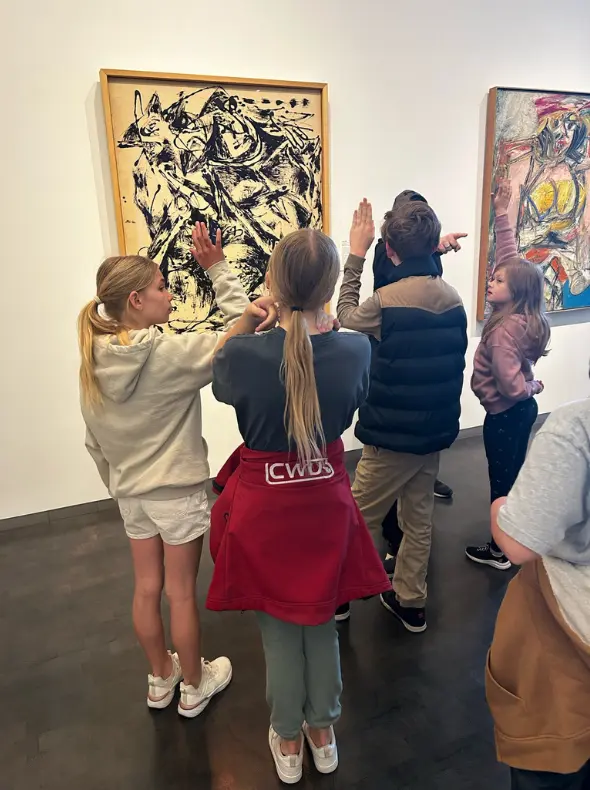Admission & Tuition

Admission
Step 1
Have you familiarized yourself with Montessori and feel as if it could be a match for your family? If so, We would love to hear from you! Please contact us to learn more and receive an application. We suggest that you begin the admission process one year prior to expected start date.
Step 2
Submit your application and application fee.
Step 4
Elementary families will be asked to visit again for a brief observation in our elementary classrooms.
Step 5
We will contact you regarding admission. First round admissions will take place in late fall. Second round will take place in early April. Priority is given to those who have siblings in our programs, to those who have attended/registered to attend our Montessori 101 parent class and to those applying first.

Tuition
Early Childhood
Half Day
$3,308/yr or 10 monthly installments of $331Full Day
$4,770/yr or 10 monthly installments of $477Full Day
$5,245/yr or 10 monthly installments of $525Half Day
Full Day
Full Day
Elementary (K-8th grade)
M-F 8:00-3:00
$5,245/yr or 10 monthly installments of $525M-F 8:00-3:00
Montessori Afterschool Care (MAC)
3:00-5:15
$675 annually (or $1125 per family) or 10 monthly installments of $68 ($112 per family)3:00-5:15
Early Birds (Early Arrival Option)
7:15-7:40
$270 annually (or $450 per family) or 10 monthly installments of $27 ($45 per family)7:15-7:40
FAQ
Each of us wants our children to be happy and, for most of us, how our child behaves and treats other people is extremely important. We need only then to decide how to make this happen. We believe that the early grades can determine how a child approaches future school experiences and even the rest of his life. If we can give our children meaningful work that they can accomplish on their own they will develop a joy of learning and a positive self-image. Children will learn to cooperate and to treat each other with love and respect. This is the greatest gift we can give them.
Each child develops at his own rate and as trained Montessori teachers we look at the whole child and recognize that she has emotional and behavioral needs as well as academic ones. We also realize that we have responsibilities to the child and his parents to see that he is prepared for his next educational experience, be it the following year of Montessori, public or private school. Often, our children are significantly advanced because the Montessori materials, individualized curriculum and one-on-one attention allow them to progress at a rapid, though thorough, pace.
Whereas we believe it is extremely important for each child to become an independent worker, we also believe that we must be available for each child when he needs help. The value of one-on-one time is extremely critical and there is no substitute for it. Each child needs to learn to ask for help when he needs it and to be able to accept help when offered. Each child knows that the teacher is available and willing to help or to show him something new. Because the class knows how to function without constant direction by the teacher, virtually all of the teacher’s time is devoted to individual and small group lessons with the children.
Maria Montessori believed that if you order a child’s environment he will order his mind. Therefore, if we provide the child with a place to work that is purposeful and orderly and allows the child to see where he’s been and where he’s going, he will create within himself an order that will help him with all his academic pursuits. The young elementary child needs to exert his independence. Freedom in his environment and the opportunity to exercise his own will are the keys to each child’s development.
All meaningful work comes from within. We can impose discipline or work on a child and sometimes we see results–however temporary. Each of us has to learn to prioritize, to choose our life’s work and to discipline ourselves for our life to have true purpose. We do children a great disservice not to encourage them in these endeavors at an early age. If by the teenage years the child has not learned to make wise choices, he can fall prey to peer pressure and become a victim of temptations that often confront young people.
Because Montessori is an individualized program, all children benefit. Children who are academically advanced can be continually challenged. The child who may be slower to develop in one or more areas has the advantage of a great deal of one-on-one direction by the teacher. All children, regardless of their level of development, need encouragement, unconditional love and a positive self-image.
Studies have indicated that Montessori children encounter little or no problems with transition. Most excel academically and socially as a result of the experiences they had during their Montessori years. The Montessori materials cover the standard state curriculum and go well beyond in most cases. Montessori students have also had a high level of experience with personal development skills such as time management, character development, problem solving and the desire to make the world a better place. Consistently, those families who have needed to make a transition to a traditional school report that the biggest adjustment for their student was being required to ask permission to use the restroom.
